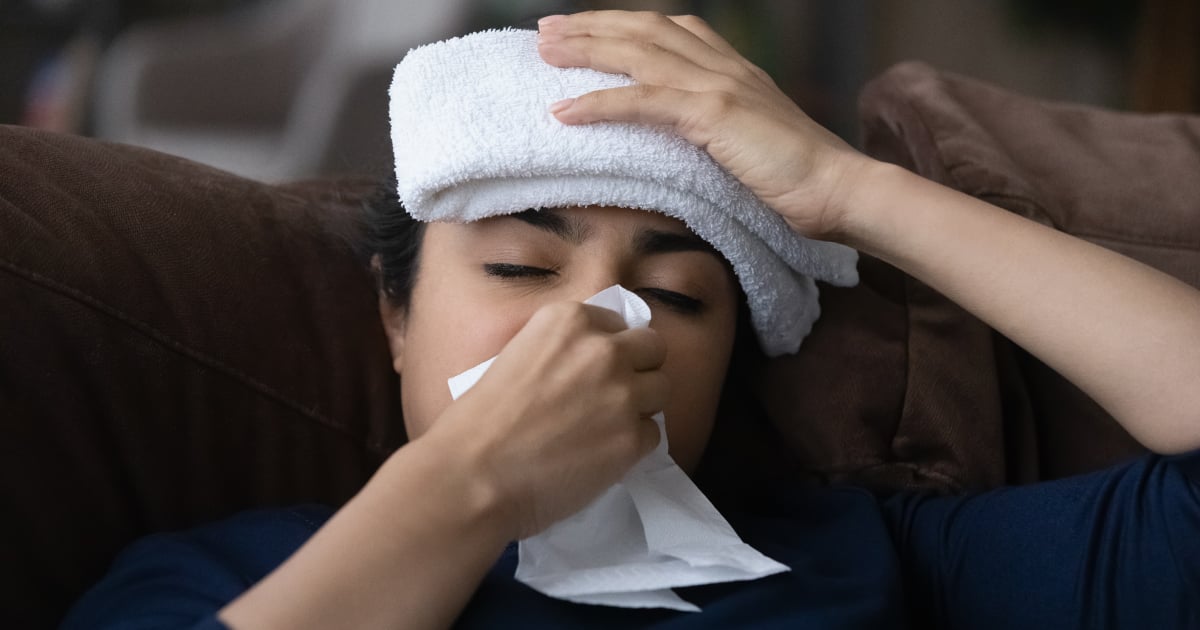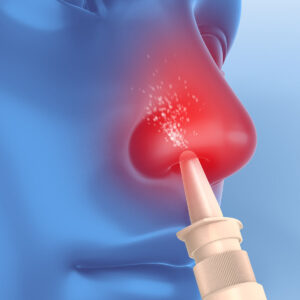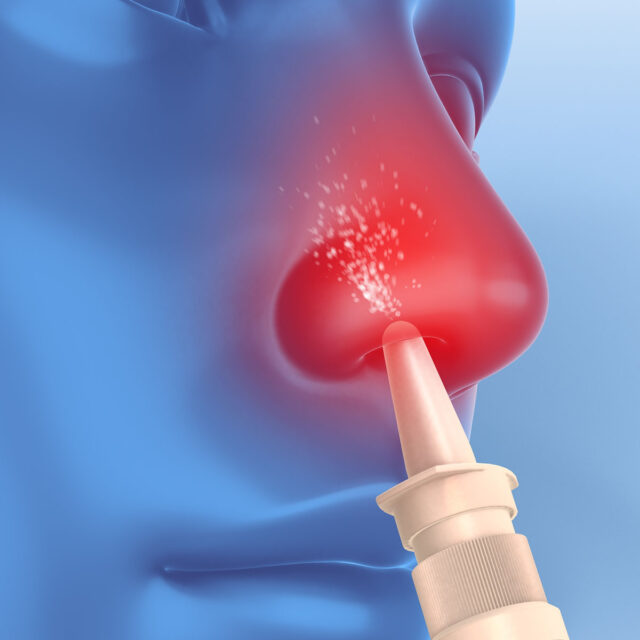During rainy season, the weather is cooler and more humid, making people feel under the weather and at higher risk of pulmonary infections that can easily spread. Knowing how to take care of ourselves and nature of respiratory infections will keep those bugs away during peak season.
Four chronic conditions we should watch out for because they commonly come with rain are

1) Common Cold
Cause: Viral infections such as Rhinovirus.
Transmission: Breathing in the virus or contact with an infected person through coughs or sneezes.
Symptoms: Once infected, it takes about 1 – 3 days of incubation that manifests as sneezes, congestion, runny nose, low-grade fever, followed by coughs.
Treatment: Symptoms can be treated as necessary. Drink plenty of warm water. If fever rises above 38.5 oC with more coughs, phlegm, shortness of breath, or loss of appetite, please visit your physician.
Prevention: Wash your hands frequently, wear a mask, and avoid sharing personal items with an infected person.

2) Seasonal Influenza
Cause: Influenza virus
Transmission: The flu virus tends to stay in mucous secretion, such as nasal secretion or phlegm. So if an infected person stays in a poorly ventilated space, they may easily pass on to virus to others via coughs or sneeze. It takes about 1 – 3 days after infection for symptoms to show up.
Symptoms: High fever of around 38 – 39oC, headache, muscle aches, fatigue, cough, sore throat, runny nose and congestion.
Treatment: Take fever reducers such as paracetamol. Please see a doctor for proper diagnosis as soon as possible since influenza can cause bronchitis, especially patients who are at risk, such as children, elderly, diabetic patients, people with chronic renal condition, heart disease, and pregnant women.
Prevention: Get a flu shot at least once a year, especially for people in the high risk group, such as children 6 months – 5 years old, seniors over 65 years old, expectant mothers, patients with chronic conditions, such as heart disease, renal disease, diabetes, cancer, immunocompromised patient, and obesity.

3) Dengue Fever
Cause: Dengue virus infection.
Transmission: Infected Aedes Egypti, commonly known as mosquitoes, are carriers that can transfer the virus to humans. They thrive in still water and are active during the day. Once infected, symptoms will start to show within 2 – 7 days.
Symptoms: Infected person will have high-grade fever around 38 – 39 oC, headaches, bodily aches, loss of appetite, nausea, vomiting. Some may develop multiple small red rashes under the skin.
Treatment: Take fever reducers such as paracetamol. Do not take aspirin or NSAIDS, such as ibuprofen. Please visit a physician as soon as possible.
Prevention: Avoid infested water and eradicate the source, especially still water source. Vaccination is recommended for previously infected patients between 9 – 45 years old as well as all who have not been infected before.

4) Respiratory Syncytial Virus
Cause: RSV infection can occur in children and adults. However, it is most common in toddlers from 2 years old to pre-schoolers.
Transmission: Direct contact with mucous secretions, such as nasal discharge, saliva of an infected person. RSV can be transmitted via respiratory tract from coughs or sneezes.
Symptoms: Incubation time is around 3 – 5 days after infection. Children may experience fever, coughs, phlegm, runny nose. If severe, they may cough incessantly with phlegm and become fatigue. They may also develop bronchitis.
Treatment: Take fever reducers such as paracetamol. Wipe the body with moist towel to dissipate heat. If condition does not improve, it is best to seek medical assistance at the hospital, especially for patients in the at risk group, such as elderly patients, patients with chronic conditions, such as diabetes or renal disease, or children younger than 2 years old. There is a chance of developing severe conditions.
Prevention: There is still no effective vaccine in small children. If they develop fever, it is best to stay home until they are better to prevent the spread in schools and child care centers.
When Does It Become Chronic?
Symptoms that make these conditions chronic are persistent coughs for more than 3 weeks after a common cold or influenza infection. There is a chance of bronchial hyperresponsiveness (BHR), when the bronchus can become easily stimulated after a viral infection. This will cause the patient to develop chronic cough for 3 – 4 weeks.
When To Seek Medical Attention
If you experience any of the following symptoms, please visit a doctor immediately:
- Extreme fever over 39 oC that will not decrease with fever reducer
- Coughing up sputum with shortness of breath
- Oxygen saturation is less than 95%
- Chronic cough that persists more than 3 weeks
Preventive Measures During Rainy Season
- Eat freshly cooked, hygienic food
- Wear clothes to keep you warm
- Drink enough water everyday
- Exercise regularly
- Sleep at least 6 – 8 hours
- Avoid rain or treading through floods
- If you get caught in the rain, take a shower and wash your hair immediately once you get home
- Avoid mosquitoes and areas with standing water
- Wash hands frequently to avoid infection











